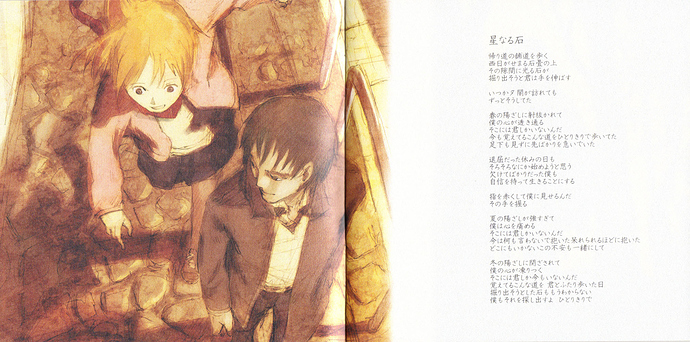Really like how this song is split into seasons, there’s quite a passage of time in the song which makes it feel like a proper story.
This song so far at least really feels more like an actual “love song” compared to some of the others. It’s how their relationship started, flourished, withered, and ended, assumingly with the singer’s partner’s death.
Well, that’s love song, everyone dies.
The second to last stanza (and the couple lines before) seems to suggest that their partner has some kind of terminal illness or something:
“You showed me your red fingers, and I held that hand of yours”
could be them putting their hand to a wound, or coughing up blood or something. Or it could be some metaphor I dunno.
that I hurt my own heart.
I’m not sure about this line. It could maybe be the singer’s fault that their partner became ill/whatever. It could possibly be them regretting meeting this person, because it only resulted in hurting them.
“And there… There was nothing, no one but you.”
The repetition of this line is neat, and then the hesitation here emphasises the sadness of the stanza.
For now, we hugged without any words. We hugged until we get tired of it.
And thus we shared this lasting anxiety together.
Super sad ;_; They’re spending as much time together because they know it’s probably going to end soon.
Pretty nice sounding song, I like the melody, and the cowbell and xylophone/whatever in the background, going back and forth in stereo between each ear, nice instruments in general.
I started like it more after reading the lyrics, it’s got some great repetition working really nicely with the seasons.
Definitely a more traditional pop-y song like @Pepe said, fitting in with the lyrics being a more traditional love song I think.


